What happens when you get two science geeks turned naturopathic educators and clinicians together? Well, that’s what happened in this episode of the Natupreneur Movement Podcast with special guest, Annalies Corse.
Annalies Corse is a Lecturer, Medical Scientist, Medical Communicator, Naturopath, Author and TEDxSyd Fast Ideas Speaker.
In this interview Annalies shares her insights into the challenges of pure science and lab work, and how it put her on the path to becoming a Naturopath, and how a chance meeting led to her last decade of lecturing and contributing to the conversation of science and research in our profession. She also shares her love of her work and what helps her when she becomes overwhelmed with the never ending amount of information and learning available.
Tune in or read the transcript below. Don’t forget to subscribe to the podcast so that you don’t miss an episode.
T: I am, as usual, really excited. I love the people that I get to talk to week after week.
When I was back in school my first university degree, I never ever would have suspected that another student that I was there with would end up talking being a guest on my podcast, talking all about being a natural health practitioner in the 2020s.
So, welcome, Annalies! How are you?
A: I’m really well Tammy, how are you? Thank you for having me today.
Melding Science and Nature
T: I’m so excited and I am really inspired by people who meld their backgrounds, and how we can create a weave and not just cut off part of our background. But how we can create this amazing weave that can be an exponential gift to people. You, in particular, are somebody I’m inspired by when it comes to being a bit of a food freak, science geek, and herb nerd!
My background with you is that we actually went through the same first university degree.
A: Yeah, 20 years ago. Actually, is it more than 20?
T: Our love of science has continued and yours has actually thrived. I love that you have fed your love of science and that it has been an exponential gift to our profession. We started in medical science but can you tell us what happened after that?
A: I spent my first year in biotech, which I think is what you did?
T: I did medical science changed over to medical and applied biotechnology.
The Journey From Science to Naturopathy
A: Okay. So I think we did the opposite. I started off in medical and applied biotechnology then I switched over to medical science after a year. So we did the old switcheroo. I did that for three years. Then I stayed at school for a fourth year and did an honours.
I did my honours with Todd Walker. I’m not sure if you remember Todd. He had a project in cervical cancer and HPV. This was more than 10 years before the Gardasil vaccine. So it was a long, long time before the vaccine was available. But I decided to do an honours year. It appealed to me because I loved studying and research and I liked the idea of being a medical researcher. That’s where I thought my career was going to go. I was pretty focused.
The thing that happened in that year was that part of my research was a survey. I actually loved the survey part because I got to go and interview students. I didn’t like the lab work.
T: Yeah, I had that same experience! That’s how I got out of lab work because I realised I missed humans.
Missing the Human Touch
A: I know I missed humans as well, but it took me a few more years to actually act on that. But I realised that in the honours year. So I did the honours year and then after that, I went down to Canberra to the AIS because I was offered a job. So I thought , “I’m going to take a job, I’m going to work. I’m going to just get away from the research stuff for a while.” I wasn’t ready to do a PhD. I was still pretty young and I didn’t want to do that yet.
So I packed my bags and moved off to Canberra. I was there for two years at AIS. That was probably where I started thinking about how the athletes – elite athletes – have got everything at their disposal. They’ve got sports medicine, sports psychology, nutritionists. They’ve got everything at their disposal. Something in me told me that I wanted to get back to illness and pathology and maybe back to the areas of medicine where I thought there was a bit more of a need.
I really liked the sports stuff and the elite stuff but it’s also a bubble. It’s a bit of a bubble. I stayed in Canberra and I worked in hospital mainly in haematology and biochemistry. That was when I really knew these analysers. I felt like I needed an engineering degree, to be honest with you!
My favourite part was when I got to ring up a patient and give them the INR results. I even remember the names of the elderly patients that I got to ring once a week. That’s what I loved.
T: I loved that, too! That was actually one of the biggest shifts for me because I did phlebotomy as well. I worked in a small private hospital. So you kind of end up doing a little bit of everything. And I remember taking the blood from an elderly lady at about two o’clock in the morning trying to do a Gentamicin level on her. And she had the worst veins. No one had come and seen her and I just thought there has to be a better way. I knew her Gentamicin level would be up. I knew I had to go and see her again in two hours.
A: So I think we had a few similar epiphanies by the sounds of it. I did the rounds in that lab and the micro department. I also did manual techniques. That was amazing. That was like grinding up renal stones and having chemistry kit working out what they were made of. I did some cytology. That all gave me a really good background in everything.
Discovering Naturopathy
Then I thought I was going to go off and do dietetics. But then someone said, “Have you thought about naturopathy??
I had no idea what naturopathy was. No concept. Where I grew up, I think there may have been one local naturopath or herbalist. So I kind of had a bit of an idea but I started sitting in with people. I spent a year in Canberra in my spare time sitting in with dieticians and nutritionists all over the place. In hospitals, at the big Military College there in Canberra. I even went to the University of Canberra and A&U and hung out with the researchers for a day because I wanted to make sure I was making the right decision.
Then I sat in with a naturopath and she was amazing. Her knowledge was just phenomenal. She was recommending whole food and food in its natural state and food that wasn’t processed. And her knowledge of pathology was amazing. So I started looking around at where I could study it. I knew I wanted a really good education in it. Having had such a great education at CSU and a real passion for science, I thought I needed to find a good education as well as getting that experience from practitioners.
So I packed my bags again and moved to Sydney.
T: Amazing. I can hear so much of myself in that story. I’ve spoken to many a practitioner who’s come from a science or medical background and then moved into naturopathy. And there’s a weird little stigma about it, I think. It’s great to be able to hear somebody else’s story when it comes to embracing both sides. What you’ve done with that embracing of both sides is just inspiring.
You’ve contributed to a body of publications, including some of the most well-known textbooks that are pretty much in everybody’s clinic. Can you tell us how your process was around creating and exploring research and then contribute to these really interesting places like? One of them is obviously scientific publications. But did it come about that you were writing chapters for some of our most favourite textbooks?
Lecturing and Publishing Research
A: It didn’t start straight away. It took me four years to finish studying naturopathy. And I was still working in labs while I was a student, that was my part-time job. So I was still very much in the orthodox lab space for another four years. But when I graduated, I went straight into practice, which I loved.
Then, one of my old lecturers said, “Would you like to come back and do some lecturing?” And I think that was probably the starting point for what’s come since, like writing and presenting. Because I found that I love lecturing. I loved it so much and I was pretty young. I was only maybe about 28 when I started lecturing – some of my students were older than me!
For the first 12 months, I was still finding my feet with lecturing. But I’ve done it now for 10 years and it’s just it’s one of the most enjoyable parts working. After a while, lots and lots of experience, and maybe 10 years into it, that’s when one of the associations asked if I would like to write an article for the journal.
I hadn’t written anything for years, since my honours degree. So I just wrote something on the evidence base for diet and cancer because my research background was cancer.
After being in naturopathy for a while, it wasn’t just cervical cancer (which has been what I researched), but pretty much every cancer is related to poor nutrition. So I looked for every Cochrane Review I could find and I just started going back and I wrote a research review article for the journals.
It’s made me realise and also with students – there’s this real fear around doing research. Some of it, I think is a feeling that research is the world of scientists and medical doctors. That’s not really our world. We’re more based on anecdotal research and empirical evidence and that sort of thing.
You hear a lot of people say that when they talk to doctors, they poo-poo empirical and anecdotal evidence. They only look at what they look at. But I disagree with all of that.
T: Yes, gosh! N equals One is going to take over the world. For us, as practitioners, there is no better study than one person in front of you and taking them from one spot to another. I get really passionate about it! When you’ve heard about an amazing case, why can’t you write an article about it?
Have the Confidence to Just Write Something
A: And I think too, within our profession, we need to get the confidence to just write something. Even if you’ve got an amazing case from your clinic. You can write an N Equal One study and have it published in either the NHAA Journal or the ATMS journal. There are journals out there for our profession where we can write them up. They are peer-reviewed, so you will get some feedback from the editorial committee saying, maybe write a bit more about this aspect.
T: It’s actually an amazing experience in itself to get peer-reviewed. Not only from a, like a mindset perspective. But it’s an incredible opportunity to see how the scientific and medical professions are really thorough in the way that they are perceiving information and the way that we can present that information. I’m sure your writing has definitely influenced the way that you lecture and you present on some of these stages, because of the feedback that you get.
A: Yeah, you can’t do it without feedback. I started off doing one article, but I wouldn’t have been able to then go and do post-grad seminars and teach other practitioners if I hadn’t had the feedback from having a go at writing a few articles or doing a lecture outside of ACN&T where I was lecturing. So you do have to just try things, get the feedback, and then move on to the next thing.
We All Have Knowledge to Share
We’ve all got knowledge to share. Medicine is very good at sharing knowledge. You only have to go into Google to see it. And there’s a zillion medical conferences that you can go to. There are lots and lots of events and conferences for natural paths. There aren’t as many. But they are so good at sharing knowledge. We are getting there, I think. I don’t think we’re there yet but our professional associations are good at doing it. And there are more coming on board, as well.
But we have to share knowledge. It’s the only way that our profession is going to be strengthened, colleague to colleague. It’s the only way our profession’s access to the general public is going to be strengthened.
I don’t like saying there’s a gap between us and medicine because I don’t believe that. I just believe that we need to talk to it more. There is a perceived divide, but I think once we start talking to it more, it can be closed.
T: I agree and being part of the conversation rather than standing on the sidelines and pointing at the conversation.
A: That’s right. Research is one way of doing that. We have to be able to understand that we’ve come through naturopathy, herbal medicine, massage therapy, or whatever it is. Being able to understand – and like you said, not pointing the finger- but having that understanding of where medical doctors have come through in their education, we need to have a bit of an understanding about that. They have a limited understanding of where we’ve come through with our education. But just knowing the strengths and the weaknesses in each side, which there is obviously, and finding out where they touch each other, that it actually brings out the best for patients.
Understanding the Strengths and Weaknesses of Both Medicine and Naturopathy
T: Yep, I agree completely. And we all have strengths. Both parts of the medical field – including the natural medicine field – have strengths and weaknesses. We have limitations and so do the doctors. So seeing where those limitations overlap means that we can provide the best care possible and be the best advocates for our patients through whatever means necessary, whether that’s research, modalities, or whatever.
So you said that lecturing is one of your favourite things. One of my favourite things is to explore that there are other options for natural health practitioners that have either just finished studying or are about to embark on a change in the way that they do business or practice. There are so many options and research is one of them.
Tell us about your experience lecturing. What is it about lecturing that you love and that you’ve resonated with?
A: One of the most favourite things for me is seeing students walk into a science-based subject like biochemistry or chemistry, and being so worried that they’re going to fail because it’s so hard. They did science at school. They were never good. Then within about two weeks, the light bulbs go off. By the end of the semester, I’ve had students go off and do science degrees because they find out that they are good at this (you don’t even have to be good at it – you just have to be interested).
I just love converting those people who thought that it was too much or that they might not like it. And then all of a sudden they say things like, “I’ve discovered my love.” Now they come out of a subject like biochemistry, loving it. That’s always one of the biggest aspects for me. I like to make science accessible for people who always thought it was too hard because they had a bad experience in primary or high school or even uni. So I really like that aspect of it. I like talking.
But I really like that. It’s just sharing knowledge again. I think that if you’ve got knowledge, you shouldn’t keep it to yourself. You have to pass it on.
If You Have Knowledge, Don’t Keep It To Yourself
T: Oh, I agree! way. Did everybody hear that?
We all have knowledge and if you notice that you’ve got it, you shouldn’t keep it all to yourself. It’s there to be passed on to everybody.
A: I can’t remember who it was, one of our colleagues in our profession. I was reading one of her blog posts maybe 12 months ago. It said something along the lines of, “We all learn with and from each other.” I thought that is just the best thing that I heard in a really long time.
I’ve learned stuff from students. I can count tens of students who have way more knowledge than me in ‘food as medicine.’ Because they’re younger and they’ve been completely immersed in it because they’ve read way more blogs about it than I have., They’ve experimented more in the kitchen than I have so they know a lot of stuff that I don’t know. I’m always picking their brains.
T: I’m the same. Some of the people that I mentor now are coming out fresh from their degrees and qualifications. They have the freshest, most up to date information. And they have it in really digestible formats now because it has to be internet fresh and understood that way. Whereas we had to pour over Cochrane Reviews and other things.
A: I’m a Luddite when it comes to the internet. If I think about good sites to go to, it’s going to be a university site or something. And they’re like, “No, haven’t you seen this one?” and I get an education.
Contributing to Textbooks
T: Speaking of education, the other thing you’ve done is that you’ve contributed to the books that I’m alluding to – the textbooks. How did that come about? Because I’m sure there are people who want to write their own books or would love to contribute to a particular publication. How did it come about for you, and what does it feel like to do that?
A: When I was asked to contribute to Clinical Naturopathic Medicine – and there’s another one coming out next year, the advanced text which is geared more towards practitioners but certainly students can have that in their libraries.
I just felt a bit weird to be asked to write for a textbook when you’re a science nerd. That’s like winning the Oscar!
The set layer who’s been compiling those books, she approached me and asked if I would like to write this particular chapter on diagnostics because of my background? I said, “Yeah, absolutely. I would love to do that.” But having said that, it doesn’t just come out of the blue. That was probably based on a good 10 years worth of work writing and participating.
Contribute to the Conversation
T: You’re contributing to the conversation without a thought about the end game. You were just there to contribute. I think that’s really important. A lot of praccies, particularly because we live in this day and age of information overload, get so overwhelmed that they don’t know what to write. So they don’t write anything. Or they only write with the end in mind.
I think the most successful practitioners that I speak to on the podcast and that we have on the stage at NatEx are there because they just have something to contribute. They may not be an expert in it. They may not be this or that, but they’re contributing to the conversation over and over again. Then suddenly happens.
A: Yeah, that’s right. Everyone has a wealth of experience. A lot of my students don’t have a science background, but they might have worked in a big corporate company. So they understand corporate burnout far more than I will. You can speak from that perspective. Or, some of my students have been previous primary school teachers. At that point, I wasn’t a mother so I didn’t understand childhood very well. So they had all this information and great expertise around navigating the whole childhood years with fussy eating, etc.
Some people may not have a science background, but they’ve got two, three or four children, which is the best experience for being an expert in everything from a psychologist through to a seamstress and beyond. We have to get over this idea that just because someone has an honours, masters, or a PhD and they’re uber-published, that they’re an expert and they’re the ones to be listened to.
Everyone is An Expert in Some Way
Everybody is an expert in some way. As you said, contributing and not hiding away and thinking that you’ve got nothing to say. We absolutely do.
I think it’s a really exciting time to be a natural health care practitioner. Even though there’s lots of talk around registration, health fund status. None of that scares me. None of that scares me because basically, if you’re in practice, a lecturer or you’re going to be writing ebooks, whatever it is that you want to be doing – if you just speak what you know and do a good job, whether we have health fund status or not, you’ll still be able to make a difference.
T: Yes, yes, yes! Take a breath, that was amazing!
A: I think, just do your job.
T: That’s why we all got into it in the first place. To help and contribute and make a change for the health of the planet.
A: Yes, yes, that’s right. And you know, you don’t have to get involved in one on one clinic. I’ve seen naturopaths or nutritionist or herbalists who do more with meeting up with:
- parent groups
- schools
- aged care facilities
- or whatever
And they just set up a meeting with someone and tell them about their qualifications. You might run a mini-trial and say, let’s try this. Let’s try that. You just have to try it and you don’t know where it’s going to take you. There’s so much that we can be doing outside of the one on one clinic space. I think if you enjoy it, just do it and try it.
Why Naturopathy Needs More Mentors
T: I agree completely. And there is space for everybody. There’s not only space for everybody’s backgrounds to meld with the natural therapies side of things. But there’s also a space for everybody. We both have the same first uni degree. We both have a background in pathology. We’ve both contributed to the conversation around pathology and diagnostics.
That contributes to the conversation which is this body of work that needs to get bigger and bigger and bigger so that the conversation can be the part of the conversation we’re having with the medical field. There is so much more knowledge to be shared, rather than hiding, seeing competition, or not saying anything?
A: That’s right. I also think our profession could be a lot better with more mentoring. I think that there are not enough experienced practitioners mentoring newbies. There are lots of different reasons for that, but I think that’s one way we can strengthen our profession, with more mentoring.
But when I say mentoring, it needs to be a two-way relationship. It’s not just the senior practitioner giving everything to the mentee. Be prepared to answer the phones, to clean the clinic, make the photocopies.
T: There are so many aspects of being a practitioner. And they all need to be experienced to understand what the whole side of being a practitioner is about. There’s such a shock that happens when we go out into practice. Then we’re like, “I thought all I had to do was regurgitate my pathophysiology and give them a prescription. What’s with all of the cleaning, and answering the phones?”
A: It’s been 10 or more years since I graduated, but teaching in it, I think it’s still the same. The graduates pretty much feel the same way as we would have done when we graduated.
T: And I agree, I think there is a shortage of mentors. I remember when I first came out, and I remember going to the clinic of a friend of a friend. And I remember being able just to walk into the dispensary and smell herbs for the first time. Just the visceral feeling of that, being part of that culture, part of the apothecary, was such a profound thing for me. For somebody to let me into that world made such a huge impact on me.
I really think that all of us who have been in for five years or longer have the opportunity to give those moments to new praccies.
A: That’s right, and it doesn’t have to be a big intensive 12-month internship. It can be once a month, once a week, a few hours a week here and there for a whole year. There are obviously no set requirements in terms of our profession once we graduate. That’s something that medicine does very well because they have the internship afterwards. We have to get better at mentoring.
You Will Never Stop Learning
If you’re five years out, don’t think that you’re inexperienced and you can’t be a mentor. You can do something. Even if you’re still on the learning curve – we all are!
I work with an integrative doctor who is actually an ex-surgeon. He had a health scare and went into integrative practice. He’s approaching 70 now, but even he says, “I can never learn it all. There is so much to learn.” And he’s a guy who knows a LOT. That’s never going to change. Don’t think it’s going to change five or ten years.
T: Or that you magically get to some point and then, “Tada!”
A: Yeah, when you’re an elderly naturopath, you’re going to feel exactly the same.
T: Awesome, what a wonderful conversation. So the last question that we’ve got is around the theme of NatEx 2020. We are so excited to have you up on stage at NatEx 2020. I am really grateful that you’re there to have a voice particularly for education and research and sharing your love of “Aha!” moments and other things with our tribe.
The theme for NatEx is ‘Love Your Work, Love Your Life, and Love Yourself’. We discussed how much you love your work. And we are so excited about the gift that you are to our profession.
Managing Burnout
But there’s such a big deal about burnout in our profession. How do you look after yourself?
A: Oh, gosh, I’m probably not the best person to ask.
T: We’re all a work in progress. But as practitioners, I think we need to open up this conversation.
A: I’ll open it up by saying I do experience burnout. I still do because I love working. And so I work, work, work, work work. And then I think, whoops.
One way that I’ve been doing it lately and this is only fairly new, is that I get very overwhelmed with information overload with all the internet and social media exposed to us. I actually shut all that out. For me, that helps me feel less exhausted, less stuff to check. I usually have one or two ways of being contacted. I don’t look at social a lot. So that’s one way that I deal with it.
T: I love that, by the way. I think that’s really, really important. It’s rare to find a practitioner who doesn’t have multiple qualifications or at least multiple modalities, which means they’re a learner. We love learning as practitioners and having information overload is completely rampant.
A: Yeah, it is it. There’s just so much. You can:
- read books
- listen to audio books
- go to seminars
- read blogs
- listen to podcasts
There’s just so much stuff. I’ve sort of tuned out of a lot of different things and I only do a couple of things. Otherwise, it’s just too much for me.
I try to be my own practitioner. It doesn’t always work. The older I get, I’ve really tried to embrace the idea that it’s not just about vitamins and minerals that we’re putting into our bodies. It’s also our approach to life. It’s our relationships with other people. All of those things can drain you of your energy and burn you out. It’s how you talk to yourself, your relationship with yourself, and your boundaries, the process of going in to be better when you go out, the world, your job, your family. Everything.
There’s More to Health than the Physical
So even though I have a pretty scientific viewpoint on most things, as I get older, I’m realising how much more important the internal work becomes. The feeling of having more energy and not being burnt out and having more time and space for people actually becomes quite big.
The way you treat your health isn’t just a physical thing. It’s very much a mental and emotional thing as well.
T: Agreed. And we can know that on a theory level, but it’s a different thing to keep experiencing it.
A: Again, we all know this. Half of the hurdle with people getting into habits and changing the way they eat, we’re often working with what’s going on between the ears.
T: And we always teach what we need to learn the most!
A: Exactly! That’s so true. I’m certainly not an expert on not being burnt out because it happened.
T: Yeah, it does happen. I’m really appreciative that you contributed to the conversation. Thank you so much, Annalies! I’m so excited to see you at NatEx 2020!
Take Action
If you got something out of this interview – because there have been quite a few gold nuggets in this one! – please share it with someone who needs to hear it.
To find out more about Annalies, visit her website: annaliescorse.com.
See Annalies Corse at NatEx 2020
Annalies will be speaking at NatEx 2020. Do you have your ticket yet? Don’t miss out on Annalies and all the other fabulous speakers and workshops.
Get your NatEx2020 ticket now!


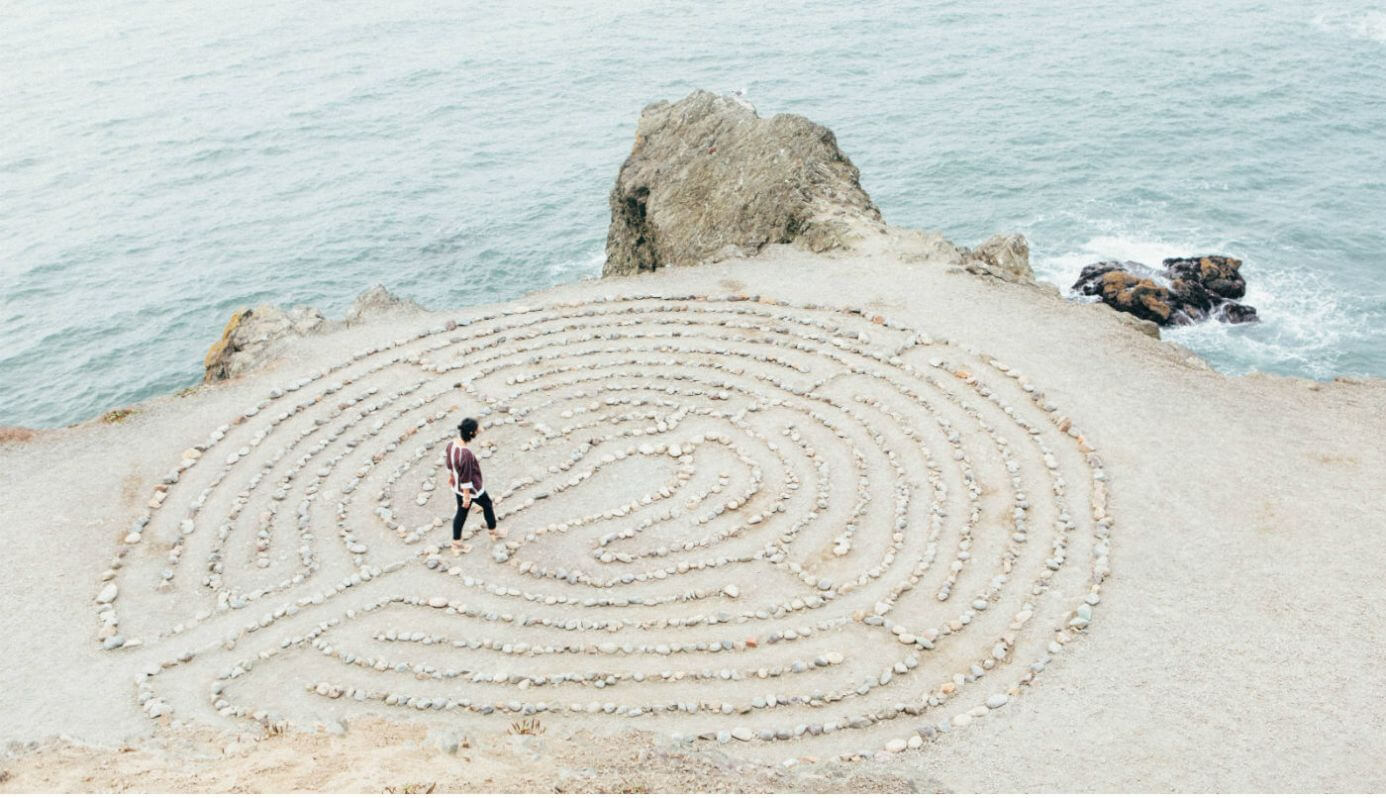
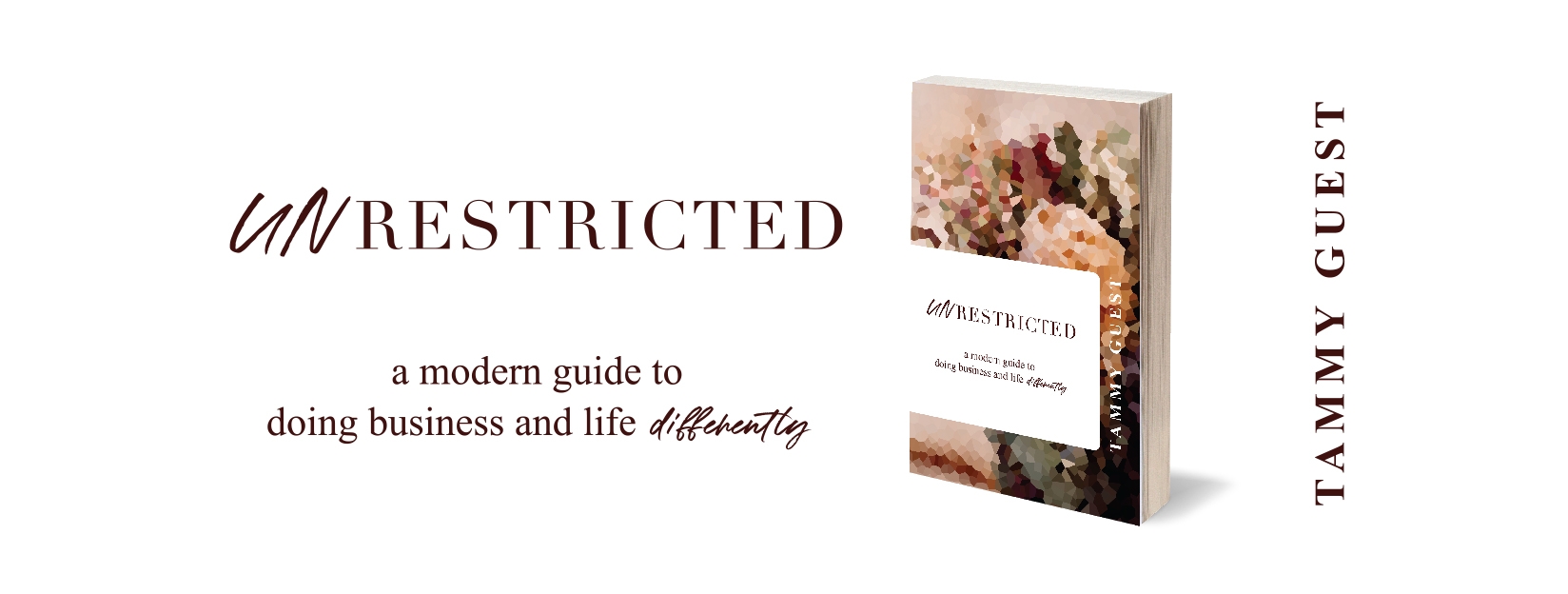
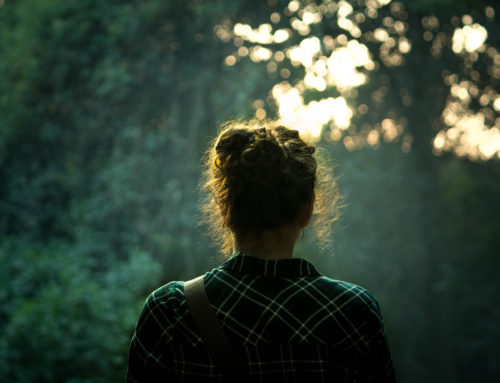
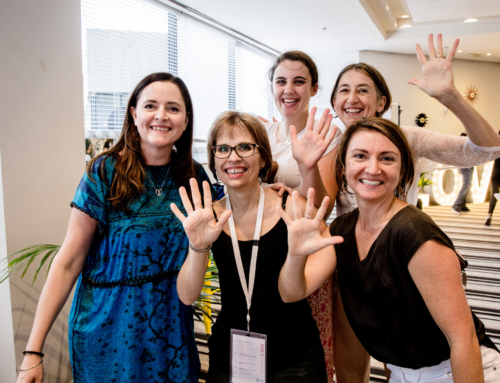
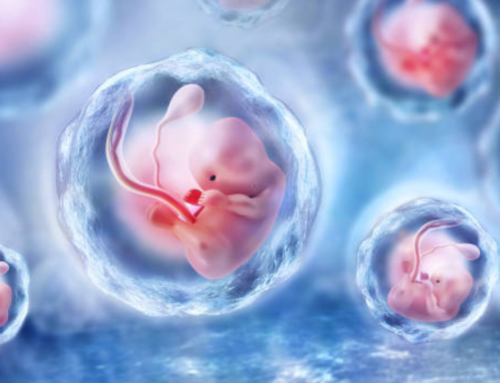

Leave A Comment